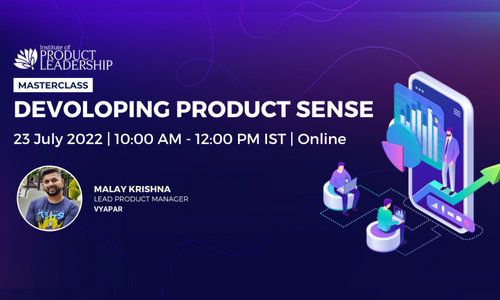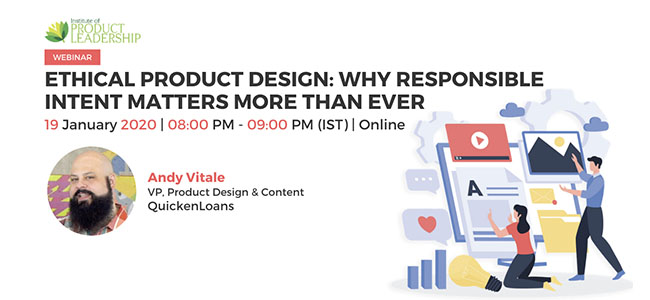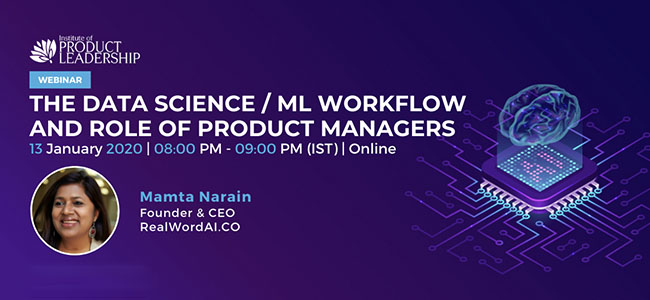Don't Treat your Education as an Insurance Policy by Kunal Shah, Chairman, Freecharge
Transcript of a Conversation with Kunal Shah, Chairman, Freecharge
Kunal’s Take
Consumer internet startups are thought to be hard. This is because most people do formal education in technical fields but very little attention is paid to studying human behaviour. Human behaviour is not alien science, it is fairly well documented. It is important for every leader to study it not just a B2C entrepreneur. Every employee you hire, every boss that you will work with, the person you will marry, every investor you will pitch to, is a human after all! I cannot imagine one to be a great leader without the study of human behaviour. Not all of us are natural at this, but this is important to learn to be successful in general.
Although I was a Science student, I veered away from the typical Engineering/Medical stream and decided to study Philosophy. I dropped out of MBA in 2003-2004 (from NMIMS) – another decision that theoretical knowledge was not enough. I read 100-150 books on human behaviour instead. I have noticed that we struggle with the basics because we don’t know how to operate humans – like an OS – what commands work and what don’t, and what results in errors.
B2C insighting is a function of empathising with and understanding consumers. Insights don’t come to people who are not active observers. I don’t see many people do this. They are not trained to do this or have a natural interest in. Being an introvert, I would count the number of people coming out of a mall to guesstimate the mall’s daily revenues. Thereby I would gain insights – on a Sunday, in India, less than 3.7% of people would come out a mall with a bag in their hand, a number unheard of in the US!
Another challenge – people with an Engineering background are limited to problem solving. You should go after inefficiency. When I started Freecharge, recharging was not a problem. It was inefficient. Till you make people taste the cake, people will not have a problem with bread.
I come from a B2B background. B2C is not a big challenge as long as you understand humans. It’s the same in B2B – you’re selling to humans there as well.
Talking about India – we were actually divided before the British came in. We were joined by them for their administrative convenience. We are divided again now by politics. In a trust-deficit nation, it is hard to build efficiency-based products, because people don’t trust each other naturally. In India, every product is actually first solving the trust issue. Inefficiency is solved much later. You have to work towards making people trust your product. If your brand is established, you can launch 25 services under the same brand.
Q&A between Kunal and Prof. Pinkesh Shah
Prof. Shah: You talk about Delta 4 – a fascinating framework on how one should build a business. You talk about inefficiency and taking consumers to a much higher level of efficiency. When people have those ideas, how do they find the resources or skills to evaluate and execute on that idea?
Kunal Shah: Instead of building a product, prototype it – have screenshots or wireframes. Show it to customers. If they feel there is a delta, then build it. I disagree with the belief of “Failing fast and winning through that”.
There are no rules to execution. Don’t have a set of rules. For example, we did not write the first code till we had our partnerships in place. I had not left my job till I started Freecharge – thanks to a flexible boss. I think the whole glory about courage to startup is overrated.
P: So starting up is evolutionary, not a clean break and startup.
K: Yes. Lot of people point out that startup entrepreneurs are dropouts. My reply is that “while lot of high IQ people don’t believe in God, if you don’t believe in God that doesn’t mean you’ll end up with high IQ”. We look for these mantras and scripts and methods and processes to become an entrepreneur. But this is not a job with an operating procedure with predefined steps. If anyone is telling you that, they’re just making money of off you.
P: If you are in the mode of being an employee and have an awesome idea, you start prototyping and building relationships. At what point do you jump off the cliff and believe it’s ready to hit the market?
K: Again, I don’t think there are good answers for that. In our case, I did not jump on to this full-time till we were doing 10,000 transactions a day – which is a huge number by startup standards – I was working like a madman and still at my job, but that’s the way it is. One should feel that this makes sense.
P: The feeling inside and the validation outside, yes.
K: Yes.
P: USP (Unique Selling Proposition) to UBP (Unique Bragging Proposition) … this concept has been around in the Valley, albeit called differently. But essentially, the product should sell itself. There should be a viral phenomenon for sharing and recommending. That works for B2C scenarios. How does it work for B2B where the end user is not so social or connected?
K: It is not true that business communities are not social. I am part of a group called “Area Sales Managers of FMCG companies” – 4000 members in a Facebook group. People are connecting with peers from different companies whether sales or finance. People are becoming more social than ever. The next disruption will not be a new app or site but a social recommendation for job opportunities.
Second, take videos of your existing customers and add them to your pitches.
If you’re a B2B selling to 500 potential customers, I would sell to the hardest customers first. Anywhere between customer #1 and #5 on the list first, versus #35 who could be my friend or from my city. If you can convince #1or #5 (it may take months or years) and get the hard customers first, getting the rest of the 500 becomes super easy. If you start with #35 and go to #1, they are less likely to even give me a meeting. This is the “aping” behaviour – people will always imitate their boss, not their maid or driver.
P: Social proof, yes. The classic SAP billboards “Citibank runs on SAP” comes to mind.
K: Exactly.
P: Virality is easy to come by if the product proposition is very strong. Speaking of sales, 10 years ago, a large percentage of people who were CEO or President of companies used to come from sales. In the last 10 years, a lot more product folks are at the helm.Obviously you are another good example. I have a two part question – what is the trend of this you see happening in India? Second, as you were growing the company at some point you hired a CEO – Alok Goel, formerly Chief Product Officer at Redbus – to run the company. What is the trend you see panning out in India?
K: As the world is becoming more and more connected, the shelf life of every business and every revenue model is shrinking. There is almost no information asymmetry. One needs to be constantly looking at how do you evolve the product to meet the ongoing demand. If you don’t do that, you are risk at being disrupted very quickly. But a lot of this insight comes only in hindsight. So the best thing to do is to constantly challenge your product thinking and push the limits on different things.
Companies are realising that – that they need to bring in people who will do self-disruption versus destruction happening from outside. It is good to experiment with both engineers and product leaders to come and do that. But this is a risk to assume this is the norm now. That becomes a trap. Every business is different. For example, most Indians don’t know the concept of “add to cart” or “Check out” – they call it “billing counter”. So my view is that product leaders are getting good challenges – marketing and product are fusing, growth and product are fusing. Org structures of many companies will see a massive transformation.
P: You said “Having a stable monthly salary is an addiction”. While that is good advice for entrepreneurs, what is your advice for mid-level managers or intrapreneurs?
K: The most important thing is to know yourself. If you stay in doubt you will always be looking at many things and find it scary and exciting. As we age and we take on more societal structure – we buy a house, we buy a car, we make a family – we are less prone to take risk. Stable income is the most amazing addiction every created. We never think about how – no business is paid on a fixed basis, but everyone working for it is paid on a fixed basis. What if everyone had to share the same risk as the entrepreneur? A weird thought.
If you see yourself as a person having more experiences per year versus years of experience, it is harder to deny how good of a person you are. No boss will accelerate that – it’s what you do to yourself. If you push yourself to get more experiences, for example, getting into a webinar like this, and getting 20, 30, 40 experiences in a year, you’ll soon feel stifled in your current job. I would say try working for a startup even if you don’t startup yourself – my current CEO, Govind was the CMO of Airtel before. He enjoys the experience and empowerment of being in a startup and taking more risk without having to go through the pain of approvals and process. It’s quite liberating!
The logical step may be to take up a startup job.
P: What is it you look for when you hire?
K: For me, the ability to have cognitive dissonance is big. I like people who have opinions, who can argue from both the sides. I’ve made mistakes when I’ve hired people who can’t do that. They usually tend to be very biased.
Two, they should be able to take on projects independently – 10X employees who don’t need an army of people to get stuff done.
Third, if they have deep knowledge about anything – maybe a sport, a topic, consumer behaviour – I hire them. This makes for slow hiring, but in the tech startups space, the law of negative returns kick in with a large employee base.
P: What are the challenges you find when you look at the pool in India? Even though we have the largest tech talent in the world, what is the challenge?
K: Thanks to our education system, we have very little creativity in our workforce. This is really sad. People usually stop at 2 or 3 lens to look at a situation. We expect our students to be disciplined and score marks. But creativity is not about that but solving things more creatively. It’s about the efficiency.
P: That’s interesting. What is the Delta 4 for education?
K: Most people treat education as a means to increase their income and not to learn – as an insurance policy into which we invest years, at the end of which we get our money back. That’s the most bullshit thing we can do to ourselves, by having that mindset. Therefore, we say “What stream should my kid study in?” and we pick the “insurance policy” that appears to give them the highest returns. The delta is when there are enough role models out there to say that it’s not about what you scored in exams but did you have the learning mindset after that.
Lot of people treat education as something they have to finish and have stopped learning.
P: You apparently said at a Leadership summit and said, “A general MBA is a waste of time and money.”
K: I said that and it was awkward. I wasn’t looking for admission there so it was fine. The internet can give you knowledge about things that one could not think of 10 years ago. The future “smarts” will probably be inspired by their school or college but I doubt they will require that to learn. The kids are already on Google and Wikipedia, and asking questions. They will not wait for someone to tell them what marketing is or what product is. If they find it interesting, they will watch videos for 8 hours and become fairly good at things.
P: Yes, there are lot of online libraries and programs available for such learning. But 94% of Coursera students don’t finish the class. But a feedback-driven model with certificates went from 94 to 40.
K: But even in a game, a leaderboard or certificate ensures that we complete. That’s how we are designed to operate. Imagine a sport without result, would you play that sport? I have done 50 things and dropped off, it doesn’t matter. Who says we have to stick to something till the end. If you don’t like this webinar, you will drop off. That’s the beauty of learning online.
P: Certainly no one dropping off here! The questions are still coming in. Many around Freecharge. You’ve obviously done a lot – t-shirts at 16, Paisaback, Freecharge, now part of Snapdeal. What’s next for Freecharge. What’s next for Kunal.
K: We continue to grow m-om. Long way to go, probably in the very early stages of India’s internet economy. What next for me? I don’t know – I’m happily undecided. At the end of Maslow’s hierarchy is freedom.
P: Raj is asking about your views on fashion commerce. Related question around innovations like pay and chat. Suresh is asking if Freecharge is now a fintech company, where is that going with Paypal, Paytm etc. Will Freecharge deepen or widen into other value propositions.
K: As industry guys we love to put companies in these compartments – fintech, retail, content etc. The company of the future will have no compartments. They will be consumer companies that people do multiple things with. Look at Amazon – is it retail, cloud, what is it? Or Google – is it hardware, search, operating system company? Putting things into buckets will be very hard. We want to be in the business of making any transactions that are painful to be painless. Anything that falls into that, we’ll do it. Freecharge will eliminate the time taken and the pain to do any transaction that you hate to do.
P: It certainly goes beyond the traditional notions of a segment..
K: …or a company even. Beliefs are very comforting but we should not be prisoners. Things are changing really fast, by the time you get comforted into believing something, it’s already irrelevant.
P: How many investors did you pitch to before getting funded?
K: No one. Investors should find you. Founders are rarely successful when they chase investors. The attractive girl in the college should get proposals, not vice versa.
P: Why did you choose to sell?
K: The objectives for any business is to create great outcomes for everyone involved – your employees, your investors and yourself. We often think of our companies as our spouses we should not part with – that is not the right approach. We should think more of them as our kids who are better off going to the next stage without us. We often give human attributes to our companies – and find it weird when someone buys or sells a company. We should look at the company’s long term sustainability, even without you.
P: How much research is enough to know if you are ready? Are there some unique inciting methods that you used?
K: If you are going to give your 3-4 years to something, don’t look for a number from me for this. IT’s your decision and your life and you should feel comfortable enough. We asked 500 people before we jumped into this. Your number may be different – you should feel right.
For research – do it yourself. Do it yourself. Don’t rely on a research agency to do it for you. The only true method of customer insighting is to talk to people yourself. Understand what they are really trying to say. Don’t enforce your biases. People fall into the trap of falling in love with their own idea. The idea that you should be in love with is being successful, not the original idea you came up with. The “confirmation bias” of psychology always puts people on the wrong track.
P: Brilliant! This was an awesome opportunity. Thank you Kunal. Any parting tips for the avid learner who looks to you as a role model?
K: Keep doing experiments around you, at home,with people around you. Have the basic attitude to test and build hypotheses. Keep reading more stuff. Push yourself. I binge the internet on a topic for 2-3 hours when I find something interesting. Have an extremely crazy growth mindset – without that, you will not succeed at work or in your startup.




